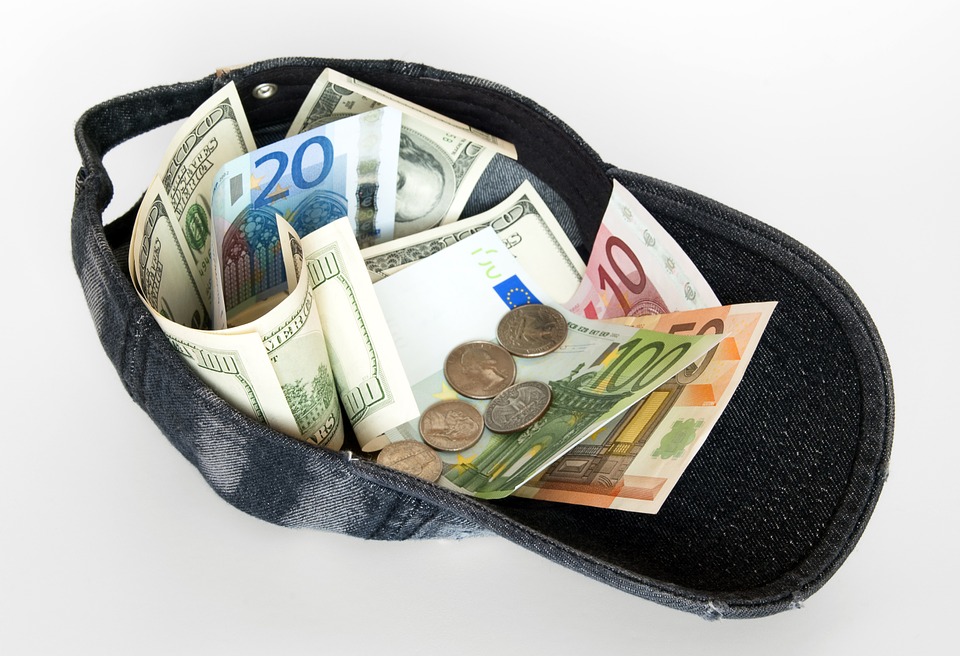Our jobs as marketers are to understand how the customer wants to buy and help them do so. – Bryan Eisenberg

“I don’t think I’m ready to sell my soul yet.” Ouch.
But that graduate student is not alone in this perception. When people bring to mind the stereotype of a marketer, they think of manipulators and Mad Men, of hucksters, Internet ads, and people tricking you to buy their crummy product.
However, this perspective (like stereotypes more broadly) is inaccurate for many. People forget that grass roots organizations, underdog political candidates, even new medical practices all require marketing, too.
TWO THINGS IN THIS WORLD

Now, that “product” can be anything from a consumer good (like a car) to a philanthropic service (like a charity). And even if you have the best product (or the worst), in reality, it’s the marketing that determines its success.
Take Apple for example. By most technical accounts, they are a pretty average computer company. However, their marketing? Now that’s one-of-a-kind brilliant…
So today, let’s consider some of the extensive research that marketing has done to make less popular “products” (i.e., donations to charitable organizations) actually “purchased.”
One of the most classic findings in marketing research on charitable donations is known as the identifiable victim effect. For example, which of the following headlines makes you more willing to donate:
(A) Help save, Maria! Just $10 today could save her life.
(B) Help save, hundreds! Just $10 today could save a life.
If you’re like most people, Option A would be more influential on the ruffling of those bills.
The identifiable victim effect is the recurrent finding that people are more likely to help a specific individual compared to helping a “statistic.” In the above example, even though Option B could potentially help more people than Option A, it’s that first appeal that generates donations.

Research suggests that when we see that single individual, it evokes greater emotional reactions (particularly, distress and sympathy on behalf of the individual) that motivates us to help. And evoking emotions is key in securing donations.
THE EMOTIONAL SELF
Now, just because I began this article discussing all the positives that marketing can accomplish, it doesn’t mean that those same tactics couldn’t be used improperly. Just as a knife can be used for injury or surgery, so, too, can human psychology.

Why? Well, when we’re focused on the self (e.g., because we’ve seen ourselves in a mirror), we’re more likely to act on our internal emotions and feelings. For example, rather than cognitively talking ourselves out of a purchase, being self-focused makes us particularly attuned to those emotions affirming us to “buy it.”
However, charities can use this same psychology to promote donations.
For example, one article gave participants one of the two following charity advertisements with the following headlines in big, bold font the only difference between the appeals:
(A) I donate
(B) Donate

So, have I convinced you? Are marketers maybe not the worst people ever? At least this future marketing professor gives you free, weekly psych•o•philosophical advice 😉
Genuinely,
jdt
Everyday Psychology: If you were trying to run a bake sale and advertise for it (or for any organization for that matter), what are some tips you can take away from today’s post? If you were raising money for high school students, how could you use the identifiable victim effect to your advantage? How would you design your advertisements? Or even what you say to your potential donors? Even if you don’t have a bunch of brownies you’re trying to sell for a charity, practicing application of the concepts and ideas can be a good way to help remember them as well exercise your cognitive thinking!
Chang, H. H., & Hung, I. W. (2018). Mirror, mirror on the retail wall: Self-focused attention promotes reliance on feelings in consumer decisions. Journal of Marketing Research.
Erlandsson, A., Björklund, F., & Bäckström, M. (2015). Emotional reactions, perceived impact and perceived responsibility mediate the identifiable victim effect, proportion dominance effect and in-group effect respectively. Organizational Behavior and Human Decision Processes, 127, 1-14.
Galak, J., Small, D., & Stephen, A. T. (2011). Microfinance decision making: A field study of prosocial lending. Journal of Marketing Research, 48(SPL), S130-S137.
Jenni, K., & Loewenstein, G. (1997). Explaining the identifiable victim effect. Journal of Risk and Uncertainty, 14(3), 235-257.


3v3 Champ
You should change the prompt from “Leave a reply” to “I reply” or the “seek truth” button to “I seek truth”. Although that said, I vaguely recall you having a prompt like “I like the truth”…is it possible you’re experimenting on us WHILE ALLUDING TO IT?
Hmmm….
jdt
You know, that is actually a really good idea… I will have to look into making both of those suggestions. As for me experimenting on you all?? Never! … 😉
3v3 Champ
Haha I always knew it! But those might be fun to try out and see if you get more results or different results rather.
Keep on doing great work bro!
jdt
Thank you, my man. As always the support and encouragement is truly valued.